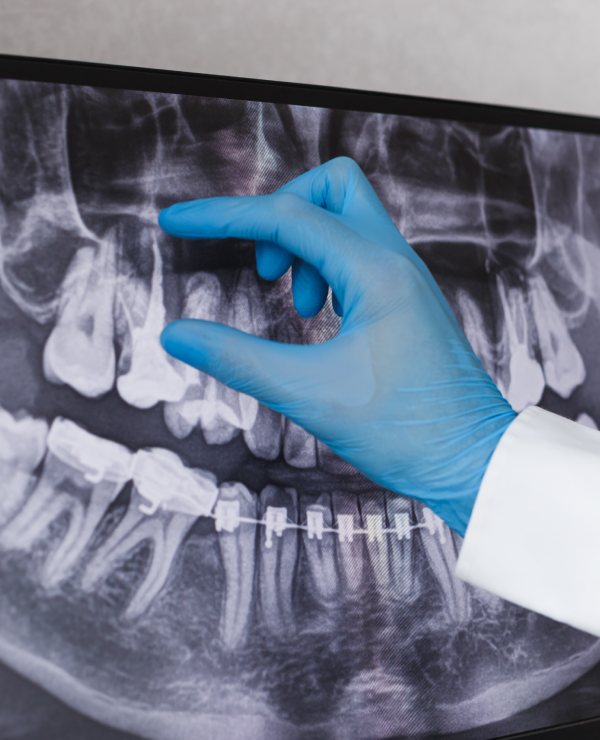METROPOLIS DENTAL GROUP
ROOT CANALS AT YOUR DENTAL CLINIC NEAR ME
Metropolis Dental Group
Root Canals in Burnaby
Although root canals have a reputation in modern media for being painful and traumatic, modern medicine and the experience of our experts guarantee your safety and comfort during the procedure here at your dental clinic near me in Burnaby. Avoiding a root canal is more painful than the procedure. Decay, tooth trauma, or periodontal disease causing the infection, as well as the infection itself could lead to more serious issues such as prominent pain, dental abscess, or systemic infection.
Yes, a root canal can be daunting, but this procedure can save an infected tooth and allows the patient to keep it even if there is extensive decay or damage. Moreover, a root canal is a better and safer alternative compared to tooth extraction. Tooth extraction could lead to issues such as teeth moving out of position and becoming crooked, reduced ability to chew, dry socket, bite collapse, avascular necrosis, or nerve injury. Many of these risks could lead to additional treatment and costs required later on. Usually, tooth extraction also requires the placement of a bridge or other such devices, furthering the cost of treatment.
Our experts at Metropolis Dental Clinic, your conveniently located dental clinic near me, always concern themselves with the health and safety of their patients. We promise to do what is best for you when concerning treatments such as these.

What is a Root Canal?
A root canal procedure involves the removal of infected tooth pulp (found inside the roots of the tooth) causing inflammation or infection in the tooth and gums. First, your dentist will take x-rays to view the extent of the damage. Then the local anesthetic is applied to numb the infected area before an opening is made in the crown of the tooth. Using specialized instruments, the infected material is removed from the pulp chamber and root canals.
Typically, the procedure is spread over a few appointments. Proper oral hygiene is especially important between these two appointments, to avoid reigniting the infection. For the next appointment, the inside of the tooth is cleaned and filled with a biocompatible material. The surgical hole is then filled in and sealed. A dental crown will likely need to be placed over the damaged tooth to protect it as it returns to full function.
Occasionally, a dental post may need to be inserted into the tooth if it lacks sufficient structure and support to retain the restoration. A post is a small metal shaft that adds strength to the recovering tooth. The procedure can sound daunting; however, local anesthetic is typically used the patient experiences no pain and minimal discomfort during the procedure here at your dental clinic near me.
How Do You Know if You Need a Root Canal?
When the pulp, or soft tissue, of the tooth, becomes infected or inflamed, usually as a result of decay or damage such as cracking and/or chipping. Symptoms of a root canal include severe pain while biting or chewing, lingering sensitivity to heat or cold, swollen and/or sore gums, gum boils, lingering foul taste in your mouth, loose teeth, or darkening of gums (decay). These are all signs of an infection in your root canals and should be treated as soon as possible. Consult with our experts here at your dental clinic near me, if you have any concerns about the health of your teeth.

Metropolis Dental Group
What to expect after a Root Canal at your Dental Clinic Near Me
Since only local anesthesia is used during a root canal, you can drive, eat and drink normally both before and after the procedure (unless you are having sedation, which will make you sleepy and take longer to wear off). You should avoid eating until the anesthesia wears off, so you don’t bite your cheek or tongue. It is recommended that you eat soft foods that aren’t too hot or cold, as you may experience soreness and temperature sensitivity for a day or so. You should also avoid chewing with the recovering tooth. Recovery time for a root canal is typically under a week.
During this time, you can brush and floss your teeth as normal. It is even recommended that you pay more attention to your oral hygiene to prevent the reignition of the infection or any other oral diseases that would cause trouble while your mouth is healing. If you have a sudden uneven bite, a reaction to your pain medication, visible swelling, or if any of the symptoms you experienced prior to the root canal return after the procedure, you should contact us here at your dental clinic near me given that any of these may indicate a more serious issue.
Occasionally after a root canal, a tooth can become discoloured in the center and develop dark spots, known as intrinsic stains. This is a result of internal bleeding from the surgical site and is nothing to worry about. However, you should contact your dentist if the bleeding lasts longer than two days. Any discolouration or spots can be removed through whitening once the tooth is fully recovered. Or, in some cases, a dental crown will be placed over the tooth, concealing the spots.
You should pay special attention to a tooth that has undergone a root canal, as there is a possibility of return problems arising or of prior issues returning—even years after the procedure has taken place.
Metropolis Dental Group
Accepting New Patients

